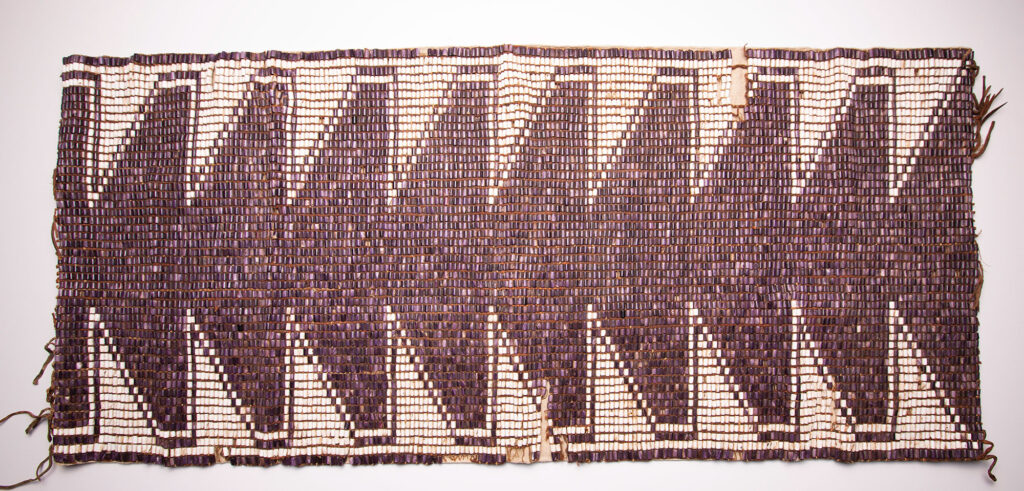
There is a beautiful tradition among the people of the Confederacy and those who follow the Great Law of Peace that has been the inspiration of democracies around the world: the practice of coming to a consensus, called ‘sgat nigoriyo’ or ’one mind’.
The process of arriving at ‘sgat nigoriyo’ requires that when people are gathered in deliberations they utilize three important skills: keeping the peace, using a good mind to examine the matters at hand, and the collective strength of coming together.
The elder Frances Boots says that this reminder is given to us when we do the traditional opening or Ganohonyo’k — the Thanksgiving Address. At the end of each verse is the phrase, “so let it be your minds” — but it is better translated as “so that the gentleness of your mind can be a collective”.
The Thanksgiving Address is said to remind us of how we are supposed to work together. Each verse acknowledges a part of creation and we say it to remind ourselves of how the natural world works in cooperation.
Frances Boots says that the Kaianerahowa is not a set of laws. Rather the teachings of Dekanawida, the Peacemaker, show us that the natural world is already setting an example for us about how we can live together in peace.
He showed our ancestors that fighting wars against each other would only cause our extinction and that we have a responsibility to follow creations example on how we can be a thriving social eco-system.
Every plant, every animal and every season has it’s job and together, they keep the leaves of the Great Tree ever-green, constantly in a state of growth, forever renewing itself. This is why the White Pine is used as our central symbol of peace. It is the ‘roots’ of the Great Law if you will pardon the pun. Together, operating in alignment with creation, respecting one another in our diverse roles and responsibilities — the ever-growing tree of long leaves extends and there is room for everyone to sit beneath it.
Prioritizing ‘Sameness’ is not a Haudenosaunee principle – least of all one that would make up the foundations of the Great Law and the teachings of Dekanawida.
This misses a core value of the Great Law — the belief that each person, family/clan and village/community has autonomy and a voice. Diversity, as in the natural world, always was and always will be our strength.
That is how the Great Law was designed — each member spokesperson must maintain the peace by honouring the diversity of ideas among the people — abandoning conformity in favour of hearing one another out and finding consensus in a diplomatic process of conversation and council.
Our Confederacy is not a melting pot. The Great Law of Peace unifies *distinct nations* who retain their national and clan family autonomy in a non-hierarchical political system of democracy – with each family maintaining a voice.
The Confederacy is a political alliance. And within that alliance has always been room for differences. We have a variety of teachings, languages, traditions, stories, cultures and ceremonies across the communities and families of the Six Nations. The collective contributions of all of our minds — our teachings, family stories, and memories plays a critical part in fortifying our alliance. Even the smallest child among us might carry an important piece of wisdom that will make us stronger together. And was are supposed to be ready to hear them.
Pre-Great Law there was a different ceremonial protocol than there was after the Great Law. There were those among our ancestors who practised Christianity after contact. And there were some who accepted the reform code teachings of Gaiwiyo Handome Lake in the 1800s. From the 1900s and into today, multiple faith traditions are noted amongst the hereditary title holders and the people who make up the clan families. All faith traditions were upheld and respected as a part of personal autonomy.
If diversity in the Confederacy is not protected and people cultivate closed minds and prioritize sameness — the risks to our political alliance could be devastating. We, the people, keep the tree alive, ever-renewing itself by honouring one another in our differences and finding pathways to peace.
Agricultural monoculture is something widely criticized for it’s damaging effects on the natural world. Too many of the same plant in one area will rob soil of its nutrients and render it infertile. Allowing a monocultural approach of sameness within our own internal governance issues here at Six Nations can have the same devastating effects to our social ecosystem.
Sameness as standard among our leaders will only deprive our territory of the nutrients that the Tree needs in order to regenerate. And it is up to the leaders today to ensure that they are making space for diversity. Commit to making decisions that keep the peace for the sake of the coming faces and keep that thought in the centre of your mind. Reach out and make effort to listen to the voices of the people. Come together, collectively, to keep the soil strong so our Tree of Peace remains ever-growing.






